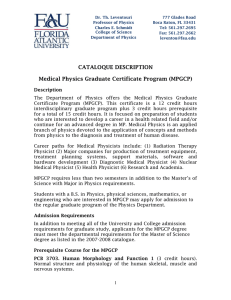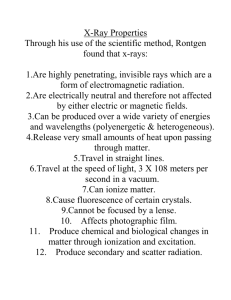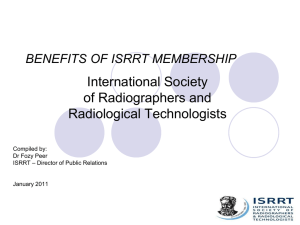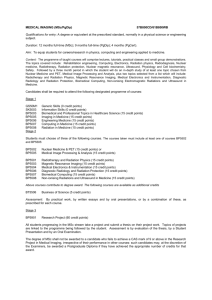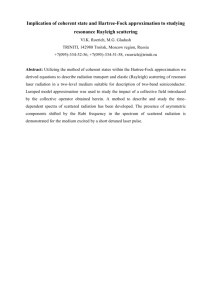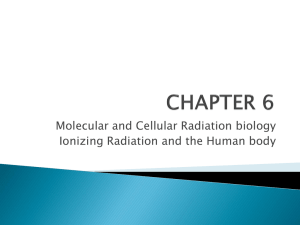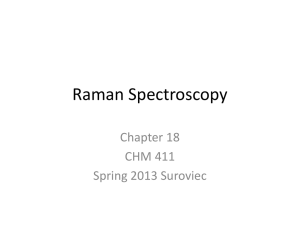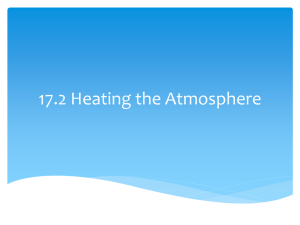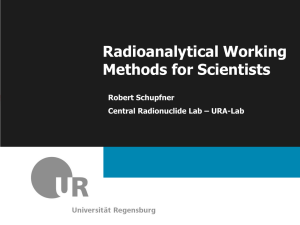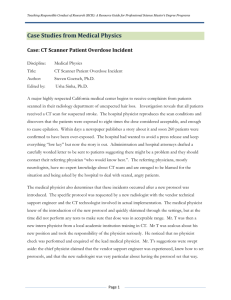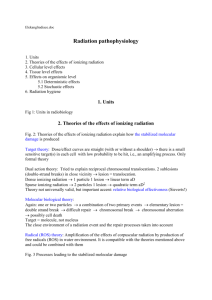Medical Physics Graduate Certificate Program
advertisement
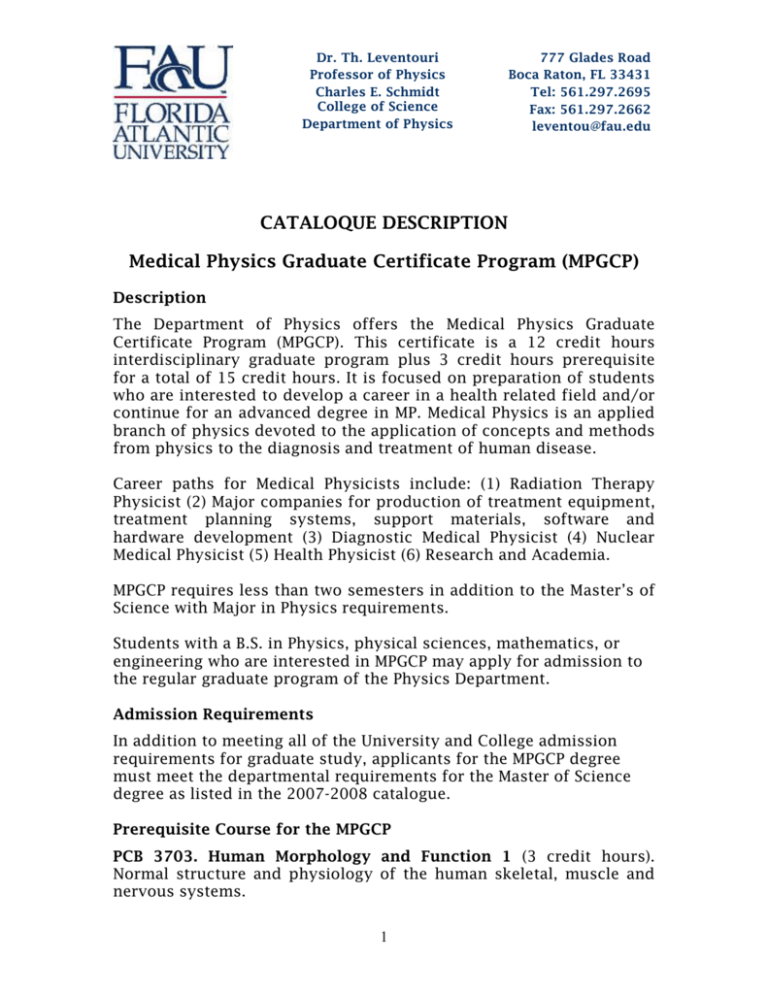
Dr. Th. Leventouri Professor of Physics Charles E. Schmidt College of Science Department of Physics 777 Glades Road Boca Raton, FL 33431 Tel: 561.297.2695 Fax: 561.297.2662 leventou@fau.edu CATALOQUE DESCRIPTION Medical Physics Graduate Certificate Program (MPGCP) Description The Department of Physics offers the Medical Physics Graduate Certificate Program (MPGCP). This certificate is a 12 credit hours interdisciplinary graduate program plus 3 credit hours prerequisite for a total of 15 credit hours. It is focused on preparation of students who are interested to develop a career in a health related field and/or continue for an advanced degree in MP. Medical Physics is an applied branch of physics devoted to the application of concepts and methods from physics to the diagnosis and treatment of human disease. Career paths for Medical Physicists include: (1) Radiation Therapy Physicist (2) Major companies for production of treatment equipment, treatment planning systems, support materials, software and hardware development (3) Diagnostic Medical Physicist (4) Nuclear Medical Physicist (5) Health Physicist (6) Research and Academia. MPGCP requires less than two semesters in addition to the Master’s of Science with Major in Physics requirements. Students with a B.S. in Physics, physical sciences, mathematics, or engineering who are interested in MPGCP may apply for admission to the regular graduate program of the Physics Department. Admission Requirements In addition to meeting all of the University and College admission requirements for graduate study, applicants for the MPGCP degree must meet the departmental requirements for the Master of Science degree as listed in the 2007-2008 catalogue. Prerequisite Course for the MPGCP PCB 3703. Human Morphology and Function 1 (3 credit hours). Normal structure and physiology of the human skeletal, muscle and nervous systems. 1 MPGCP Courses 1. RAT 6684. Radiation Physics (3 credit hours). A course covering the basics of ionizing and non-ionizing radiation, atomic and nuclear structure, basic nuclear and atomic physics, radioactive decay, interaction of radiation with matter, radiation detection and dosimetry. 2. BSC 6834. Introduction to Radiation Biology (3 credit hours). An overview of the effects of ionizing radiation on human and other biological systems. The course involves consideration of cell survival after exposure to ionizing radiation, repair of radiation damage, radio-sensitizers, and radio-protectors, doses and risks in diagnostic radiology, cardiology, nuclear medicine, and basic safety rules. 3. RAT 6628. Radiation Therapy Physics (3 credit hours). This introductory course has a clinical orientation, and reviews the rationale, basic science, methods, instrumentation techniques and applications of radiation therapy to the treatment of a wide range of human diseases. Major radiation modalities are covered including low and high-energy photon therapy, electron and proton therapy, and low and high-dose rate brachytherapy. The clinical process of treatment, methods of calculating dose to patient, and the role of the medical physicist in radiation oncology clinic, are covered. 4. PHZ 6245. Medical Imaging Physics (3 credit hours). A course describing the basics of noninvasive imaging techniques including Magnetic Resonance Imaging (MRI), functional MRI, Diffusion Tensor Imaging (DTI), electro- and magnetoencephalography (EEG, MEG). Analysis and visualization of high-dimensional datasets. 2
